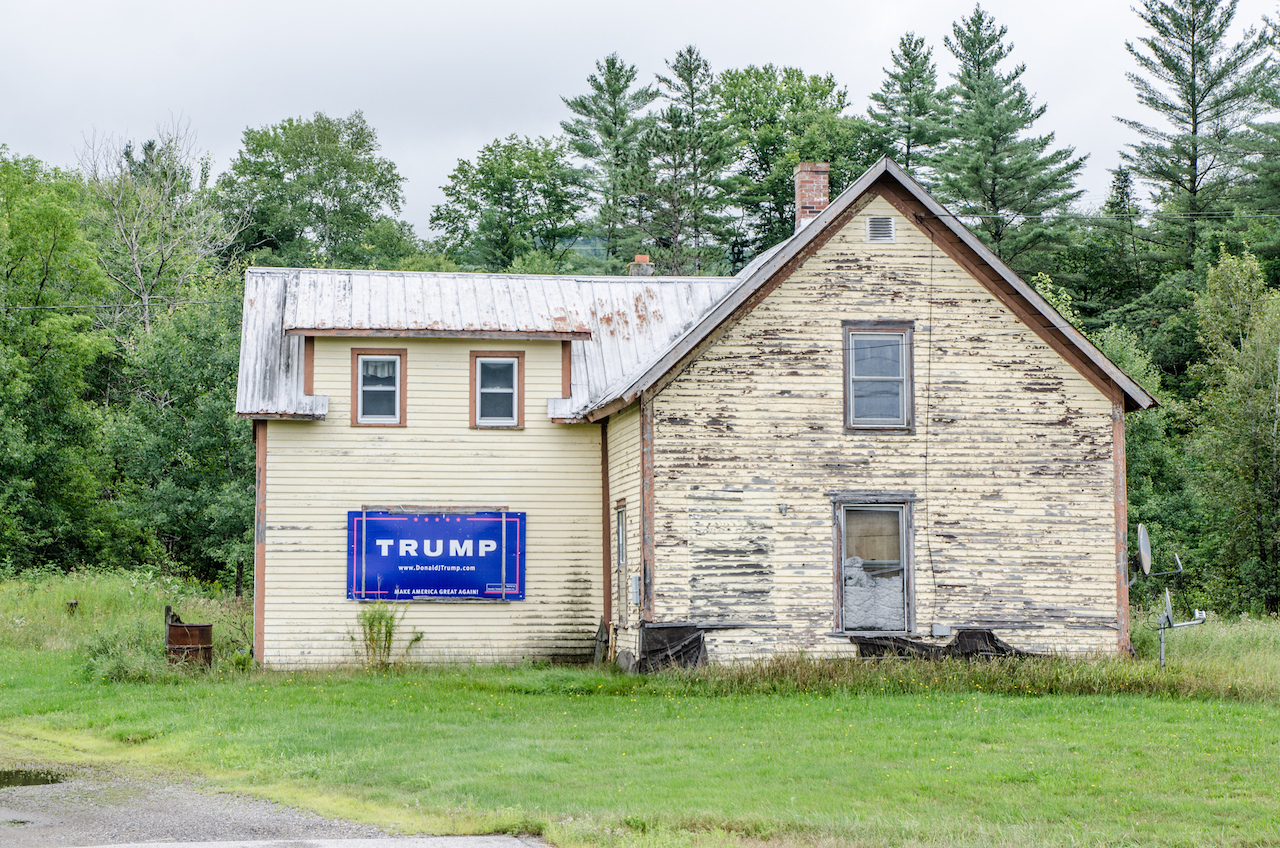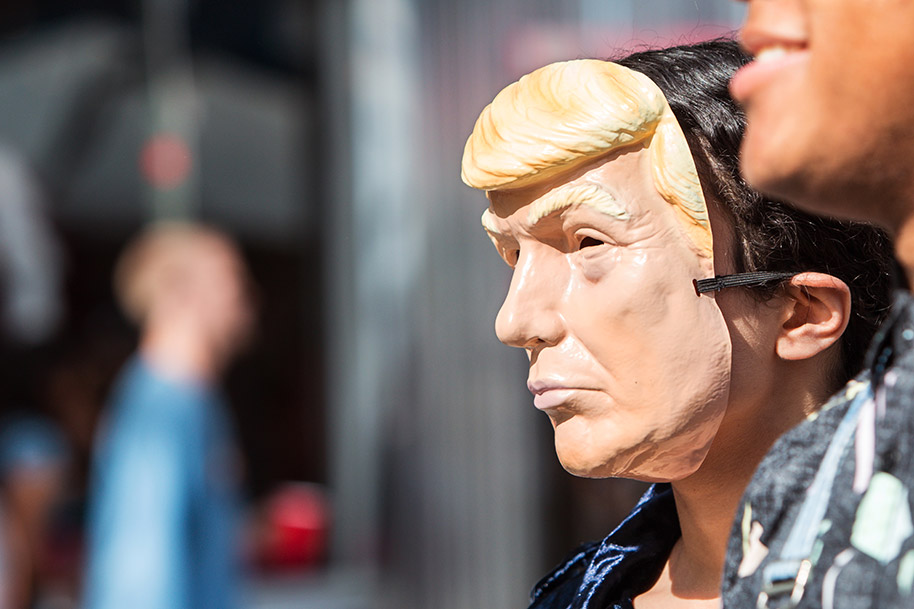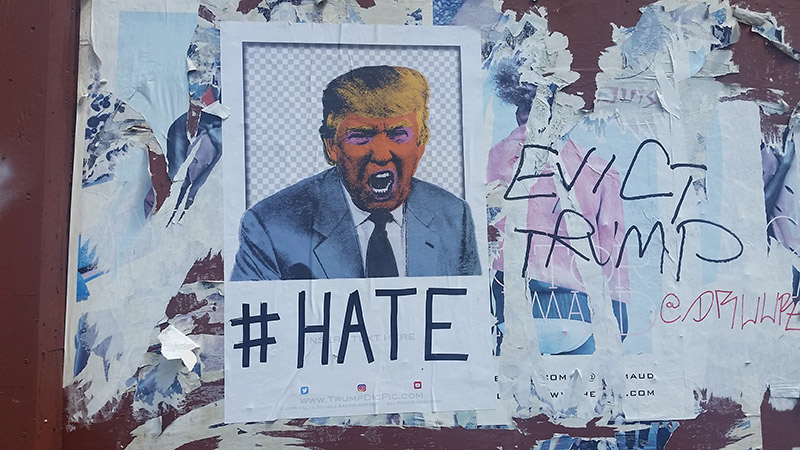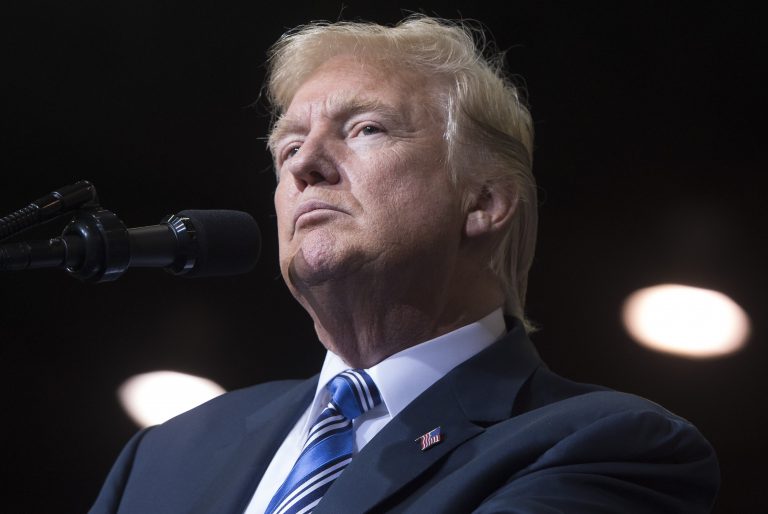Hard and Soft: Competing against the administrative state.
In Search of Populism

In Search of Populism: The ruling class ignored the people; the people struck back.
By Charles Kesler’s reckoning, the populism that brought Trump to power emerged from the sound conservative instinct to rebel against the modern administrative state. Conservative voters elected the orange-haired real estate mogul to restore limited government!
This is wishful thinking. Trump voters in 2016 were not the Claremont Institute’s well-catechized Publius Fellows. They went to the polls to elect a man whose signature public stances entailed rejecting the the postwar era’s political culture, including mainstream postwar conservatism.
The postwar era has been characterized by a de-regulatory consensus. This has a cultural dimension. In the 1950s, mainstream liberal writers bemoaned “organizational man” and wrote about the “lonely crowd.” More and more people came to reject legally (and socially) enforced racism—the epitome of bad cultural regulation. These concerns about intrusive and unsustainable regulation intensified in the 1960s. In Griswold v. Connecticut (1965) the Supreme Court struck down state regulation of contraceptives. Then came abortion, to be followed by homosexuality.
Sexual liberation was but one part of a much larger project of cultural de-regulation, championed mostly by the center-left, but often with the center-right’s cooperation. (See the history of no-fault divorce.) Multiculturalism came to the fore, followed by a post-Cold War spirit of cosmopolitanism. We enthused about a borderless world. Universities championed their new, global missions. “Inclusion” and “diversity” emerged as supreme goods, commanding a bipartisan consensus. Our society was to become more open and fluid. Life would be fuller, more productive, and happier without rigid boundaries or restricting roles.
The de-regulatory consensus also had an economic dimension. In 1945, sixty-five percent of American GDP went to the war effort. Our economy was regulated by production goals, price controls, and all manner of central planning. From the time Truman released Detroit from military production quotas, the American economy has been on a trajectory of de-regulation. As top marginal rates fell over the decades, the government withdrew its support for industrial cartels. American political leaders—center-left and center-right—championed global trade. We led the way in the development of open global capital markets.
As the Soviet empire was crumbling in 1990, George H. W. Bush addressed the United Nations. He urged a global effort to create a future of “open borders, open trade, and, most importantly, open minds.” This formulation could well serve as the postwar era’s catechism, which, again, I must emphasize rested upon a center-right and center-left consensus. By the time Barack Obama had become president, Bush’s formulation was thought to express a metaphysical truth, one affirmed wholeheartedly by the editors of the New York Times and the Wall Street Journal. We only argued about means, not ends.
Today’s populism rejects the de-regulatory, “openness” consensus. Building the “beautiful wall” was one of Trump’s most effective campaign slogans. It is the image of closure, not openness. Trump backed this up not only with promises to combat illegal immigration, but to also rip up free trade agreements and build a wall of economic protectionism. All of this was laced with un-nuanced, pro-American rhetoric.
Meanwhile, Trump addressed social conservatives with blunt directness. He did not reiterate conservative pieties about appointing judges who will “respect the constitution.” Instead, he said he would appoint pro-life judges. He did not promise to protect religious freedom; he promised to say “Merry Christmas.” He repeatedly, pungently, and unapologetically violated the canons of political correctness, which is the police arm of the cultural de-regulation project.
These signature stances sin against the postwar consensus. During the campaign, mainstream conservatives howled with outrage as Trump transgressed free market principles. Foreign policy experts warned that he would torpedo the “rules based international order.” Liberals freaked out over the fact that their (to them) obvious demonstrations of Trump’s sexism, racism, and general hostility to every principle of an open and inclusive society utterly failed to derail his candidacy.
The postwar consensus defines what it means to be a respectable public figure in America. That’s why libertarians are clubbable, but social conservatives are not. The same holds for pro-market, globalist liberals. They work easily with Republicans and get sinecures at Google, while fringe neo-socialists don’t. As long as your social and economic views tend toward de-regulation, you’re part of the mainstream.
It’s not surprising, therefore, that the conservative and liberal establishments united in their opposition to Trump. A few mid-tier conservative intellectuals endorsed him. Most either opposed Trump on principle, or scurried for cover, fearing retribution from the conservative power brokers who control the money. The center-left combined horror with glee, convinced that such an obviously awful man — utterly unqualified! — would never get elected.
And, of course, he did.
Populism is not a political philosophy. It’s a phenomenon unique to democratic modernity. In the ordinary workings of a democratic system, a governing consensus forms. The consensus frames the back-and-forth of partisan electoral politics. At some point, however, the consensus can become decadent and dysfunctional, and then the demos becomes restless. Populism emerges out of this often undifferentiated restlessness. When the ruling class ignores or derides the unsettled populace (as is happening today — deplorables, takers, and so forth), the restlessness jells into an adversarial mood. A populist is anyone who gains political power on the strength of this adversarial stance. He does so by opposing the governing consensus, which means attacking its political embodiment — the ruling class.
By this definition, Trump is undoubtedly a populist. At one of his campaign rallies he said, “Our country is being run by very stupid people.” This resonated, not because his supporters think Bill Kristol, Paul Wolfowitz, Richard Holbrook, Ben Rhodes, or others have low IQs, but because they and almost our entire ruling class are wedded to increasingly counter-productive assumptions about what our country needs. Life expectancy for white working-class men is declining dramatically, and we need transgender rights? Millions are in our country illegally, and we need to go to war to defend the “rules based international order”? The Ohio River Valley looks like Germany after World War II, and we need still more free trade deals? It’s the definition of political stupidity to insist upon courses of action that are patently at odds with the actual problems we face.
Perhaps you are anti-populist on principle, thinking that ordinary people almost always get things wrong — and, anyway, they just want free stuff. Or maybe you think today’s populism is misguided, and that what our country needs is a still more fluid and open culture, greater diversity, further economic deregulation, and more robust global markets. These are not stupid ideas, you insist. They are respectable, even wise.
Whatever our views, we need to face reality. The winner of the last presidential election transformed the American right by separating conservative voters from their establishment leaders. That’s what populist politicians do. They say what is popular but prohibited.
Trump’s message to voters was not “I will open things up to create opportunity and economic growth.” It was “I will defend you.”
His message was not “Diversity is our strength.” It was “America is for Americans.”
His message was not “Our job is to lead the world.” It was “My job is to look out for your interests.”
Trump contradicted the postwar governing consensus. His messages were the opposite of those conveyed by every significant American politician since the end of the Cold War. He is the anti-George H. W. Bush: strong borders, not open ones; advantageous trade, not open trade; loyalty and patriotism, not open minds. Trump’s populism explodes the ruling class’s monopoly on messaging. And monopolies are very hard to reconstitute.
Conservatives like the word “freedom.” That’s a better word than “open,” which has utopian connotations of limitless and borderless existence: we are the world! But we need to learn from Trumpian populism. At the end of the postwar era, the meaning of “freedom” has become libertarian and de-regulatory, almost a synonym for “open.” As a consequence, conservative voters — voters who want to renew and restore something solid and enduring in America — no longer thrill to our rhetoric of freedom.
At the 2016 Republican Convention, Ted Cruz gave a typical long-winded convention speech. But the leitmotif was clear and constant: freedom. He used the word one hundred times in a compulsive attempt to resurrect Ronald Reagan, or at least it seemed that way to me.
A couple days later, Trump gave his acceptance speech. He did not emphasize freedom. In fact, I don’t think he used the word more than one or two times.
The postwar era is ending. The center-left politics of cultural de-regulation no longer commands widespread support, which is why it has to rely on a punitive, hectoring political correctness. The center-right project of economic de-regulation is losing its appeal, especially in its global aspects. Voters are rebelling. They want national reconsolidation, cultural stability, and relief from ever-intensifying economic competition. We see it in Europe. It’s happening in the United States.
I say, thank goodness.
The American Mind presents a range of perspectives. Views are writers’ own and do not necessarily represent those of The Claremont Institute.
The American Mind is a publication of the Claremont Institute, a non-profit 501(c)(3) organization, dedicated to restoring the principles of the American Founding to their rightful, preeminent authority in our national life. Interested in supporting our work? Gifts to the Claremont Institute are tax-deductible.
Breaking Bad: What David Azerrad Gets Wrong about Trump and Manliness.
Kesler's "Thinking About Trump" essay explained then why the NeverTrump right is finished now.
Breaking Bad: The kindler, gentler days are over.
The substance of Trump's Constitutional vices.
American Greatness and the Claremont Institute are leading a renaissance on the Right.






